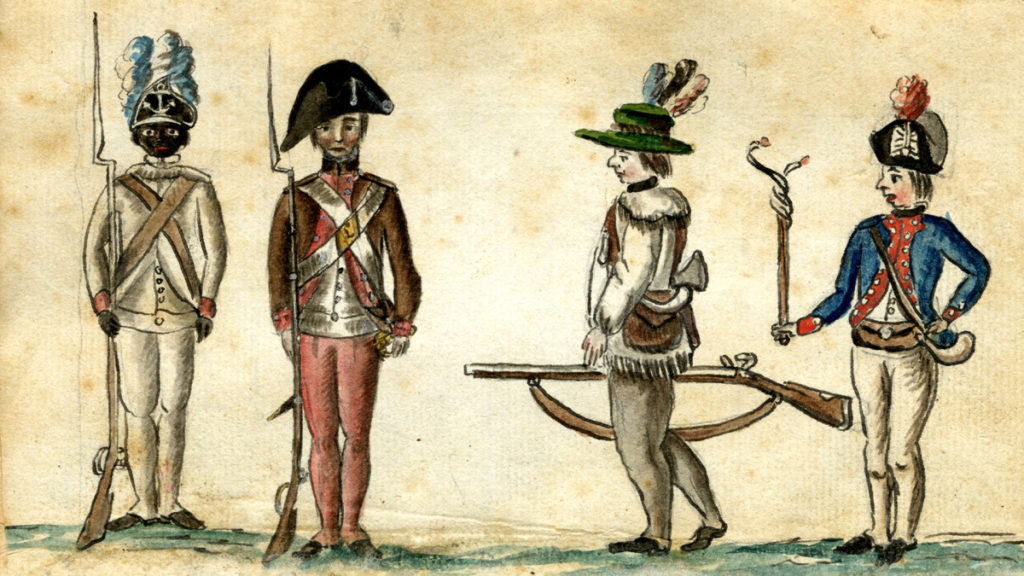How Racism Influenced the American Revolution

Happy Blow Your Fingers Off with Fireworks Day! On this great and glorious day, let’s remember that one of the key causes of the American Revolution was whites discovering their Black labor were allying with the British.
Starting in November 1774 — five months before the Battles of Lexington and Concord — Blacks in the Virginia Piedmont gathered to assess how to use the impending conflict between colonists and crown to gain their own freedom. Over the next 12 months, African Americans all over the South made essentially this pitch to beleaguered royal officials: You are outnumbered, you need us — and we will fight for you if you will free us. At first the British refused, but eventually Lord Dunmore, the last royal governor of Virginia, began quietly welcoming African Americans to what he called his “Ethiopian Regiment.” On Nov. 15, 1775, Dunmore’s Black troops defeated a Patriot militia force, with the Patriot commander being captured by one of his own former enslaved men. Later that day, the governor issued an emancipation proclamation, promising freedom to rebels’ enslaved people who served in his army. With less fanfare, other colonial officials, especially Royal Navy captains, also accepted Black volunteers.
Until 1775, most White Americans had resisted parliamentary innovations like the Stamp Act and the tea tax but had shown little interest in independence. Yet when they heard that Blacks had forged an informal alliance with the British, Whites were furious. John H. Norton of Virginia denounced Dunmore’s “Damned, infernal, Diabolical proclamation declaring Freedom to all our Slaves who will join him.” Thomas Paine pronounced the Anglo-African alliance “hellish.” “Our Devil of a Governor goes on at a Devil of a rate indeed,” wrote Virginian Benjamin Harrison, who would later sign the Declaration of Independence.
Whites’ fury at the British for casting their lot with enslaved people drove many to the fateful step of endorsing independence. In his rough draft of the Declaration, Thomas Jefferson listed 25 grievances against George III but devoted three times as many words to one of those grievances as to any other. This was his claim that the king had first imposed enslaved Africans on White Americans and was now encouraging those same enslaved people “to purchase that liberty of which he has deprived them, by murdering the people upon whom he also obtruded them.”
Soon after the adoption of the Declaration, Black freedom fighters set about transforming its meaning.
…
Some who discussed the Declaration drew attention to a different section, as Slauter also notes: the part where Jefferson insists upon human equality and unalienable rights. These clauses proved useful to Congress’s critics as proof of the hypocrisy of Sons of Liberty who were also enslavers.
But other Americans drew inspiration from these same passages. Only a few months after July 4, 1776, Lemuel Haynes, a free Black soldier serving in the Continental Army, wrote an essay he called “Liberty Further Extended.” He opened it by quoting Jefferson’s insistence that “all men are created equal” and possess “certain unalienable rights.”
Soon, other abolitionists were spotlighting the Declaration’s equality and rights clauses. These passages also drew attention from 19th-century women’s rights advocates. The South Carolina-born abolitionist and feminist Sarah Grimké insisted in an 1837 essay that “Men and women were CREATED EQUAL.” And Elizabeth Cady Stanton patterned her Seneca Falls “Declaration of Sentiments” on the Declaration of Independence.
Congress’s Declaration did not achieve its goal of a military alliance with France. It would be nearly two more years before the first French battleships sailed into American waters. But by shifting the focus of the Declaration of Independence from states’ rights to human rights, abolitionists and feminists made it one of the most successful freedom documents ever composed.
The great irony of Jefferson–and really of the entire Enlightenment–was using language that was never meant to free anyone but wealthy white men to inspire revolutions around the world that these writers would have despised. Such is the duality of the American thing.
